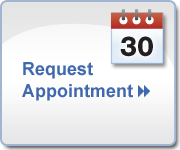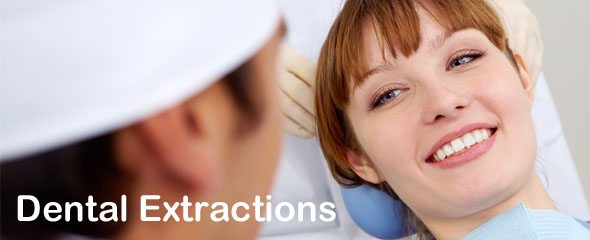 Having severe tooth pain or a recent accident that damaged a tooth?
Having severe tooth pain or a recent accident that damaged a tooth?
Or Perhaps you suspect wisdom teeth problems.
These are some situations causing you to think about having a tooth taken out.
Although often not preferred, there are times when teeth need to be removed or “pulled”. Comfort Dental commonly refers to this as an extraction.
While there are several reasons a tooth may need to be extracted. Let’s first look at the most commonly removed – Wisdom Teeth...
.
Wisdom-Teeth – Most Diagnosed Reason for Dental Extraction in Our Office
Because your third-molars are your last teeth to come in, space for them may be severely limited. They may push into the teeth already in place, becoming stuck as they try to come in. This situation can also prevent them from coming into the mouth in the correct biting position. The term “impacted wisdom tooth” is used to describe this condition.
When wisdom teeth are trapped, these molars can cause problems such as infections, cysts, gum disease, crowding or damage to adjacent teeth, and unwanted decay (due to the difficulty in keeping the area clean).
.
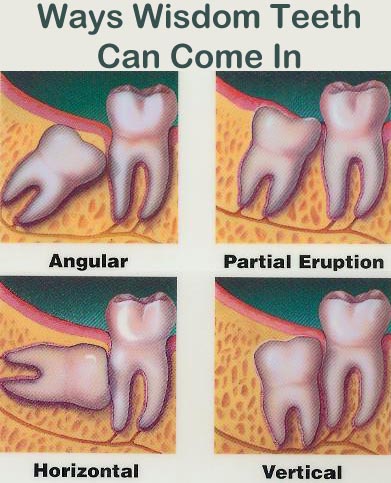 Should You Wait for Wisdom Tooth Pain?
Should You Wait for Wisdom Tooth Pain?
The old saying, “If it ain’t broke, don’t fix it,” doesn’t really apply when discussing your wisdom teeth. It’s great if they aren’t bothering you, but don’t wait for problems to develop before you take action. This may seem counter-intuitive, and you should know that the best (and often simplest) time to have your wisdom teeth removed is when they are not causing problems.
.
7 Indicators Your Wisdom Teeth May Need to Come Out
Every patient is unique, but in general, wisdom teeth may need to be removed when there is evidence of changes in the mouth such as:
- Infection
- Cysts
- Tumors
- Pain
- Damage (or potential for damage) to adjacent teeth
- Gum disease
- Tooth Decay (if it is not possible or desirable to restore the tooth)
.
Not All Wisdom Teeth Need to Be Removed
Wisdom teeth left in should continue to be monitored. The potential for developing problems later on still exists. As people age they are at greater risk for health problems and that includes potential problems with their wisdom teeth.
OTHER COMMON REASONS TEETH NEED REMOVED:
- Severe decay or infection
- Severe gum disease affecting the supporting tissues and bone structures of teeth
- Fractured teeth often due to an accident
.
Don’t Jump to Dental Extraction without Careful Evaluation
The removal of a single or multiple teeth can lead to problems related to your chewing ability, problems with your jaw, and cause shifting of remaining teeth. To avoid these complications, Dr. Brucken and Dr. Stubbs will discuss alternatives to extractions, as well as options to fill in the gap of extracted teeth.
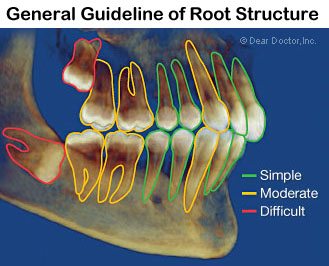 Simple vs. Surgical Dental Extractions
Simple vs. Surgical Dental Extractions
- Simple extractions involve the removal of a tooth intact and visible in the mouth. Also, the shape of the root or roots lends to easy removal.
- More difficult, surgical extractions are typically an operation by an oral surgeon. This procedure involves removal of a tooth that has more complex root structure or is very brittle. A surgical extraction would also be needed when a tooth is not visible in the mouth due to (1) it not yet coming in or (2) because the tooth has broken off.
.
8 Extraction After Care Tips
 1- Healing After a tooth has been extracted, there will be a resulting in a hole or depression where the tooth existed. In time, the hole will smooth over. This process can take many weeks or months. After only a couple of weeks most no longer find the site noticeable.
1- Healing After a tooth has been extracted, there will be a resulting in a hole or depression where the tooth existed. In time, the hole will smooth over. This process can take many weeks or months. After only a couple of weeks most no longer find the site noticeable.
2- Bleeding Some bleeding may occur after a tooth is removed. Placing a piece of clean, moist gauze over the empty tooth socket and biting down firmly for 45 minutes can help control bleeding. Contact our office if bleeding continues after 6 to 8 hours.
3- Blood Clots Much like a scab from a cut on your hand, blood clots form in the empty socket. Don’t be alarmed. This is an important part of the healing process and you must be careful not to dislodge the clot. One should take care to:
- Avoid rinsing or spitting for 24 hours after a dental extraction
- Don’t use a straw, smoke or drink hot liquids for 24 hours or more after an extraction
.
4- Swelling If swelling occurs, rest an ice pack against your face for alternating intervals of 10 minutes on and 20 minutes off. Repeat as necessary for up to 24 hours.
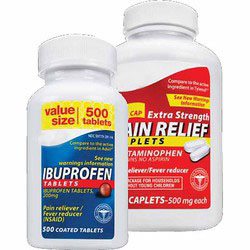 5- Pain and Medications If you experience pain you may use non-prescription pain relief medications such as acetaminophen (Tylonol) or ibuprofen (Advil). If stronger pain medications have been prescribed by the doctor, take as directed until acute pain is improved.
5- Pain and Medications If you experience pain you may use non-prescription pain relief medications such as acetaminophen (Tylonol) or ibuprofen (Advil). If stronger pain medications have been prescribed by the doctor, take as directed until acute pain is improved.
6- Eating Most patients can eat normally after an extraction, taking care not to chew near the extraction site. Avoid hot liquids and alcoholic beverages for 24 hours. For some people, a liquid diet may be recommended for 24 hours.
.
7- Brushing and Cleaning Do not brush the teeth near the extraction site the day following the procedure. After that you may resume gentle cleaning. Avoid commercial mouth rinses, which might irritate the site.
Beginning 24 hours after the dental extraction you can rinse with a salt water solution (1/2 teaspoon of salt in a cup of water) after meals and before bed.
.
8- Dry Socket When the blood clot described above fails to form or is dislodged, dry socket can occur. This situation can delay healing and is estimated to occur in about 3-4% of extractions.
Carefully following the post-extraction instructions will reduce the chances of developing dry socket. Patients with dry socket typically experience a dull throbbing pain, appearing three to four days after the dental extraction. The pain, which radiates from the extraction site, can be moderate to severe. Dry socket may also cause a bad taste or bad breath and the extraction site appears dry.
Dr. Brucken or Dr. Stubbs may apply a medicated dressing to the dry socket to soothe the pain.
.
If you suspect you may need a tooth extracted or have additional questions about having teeth removed, let us know. We are here to help!
.


